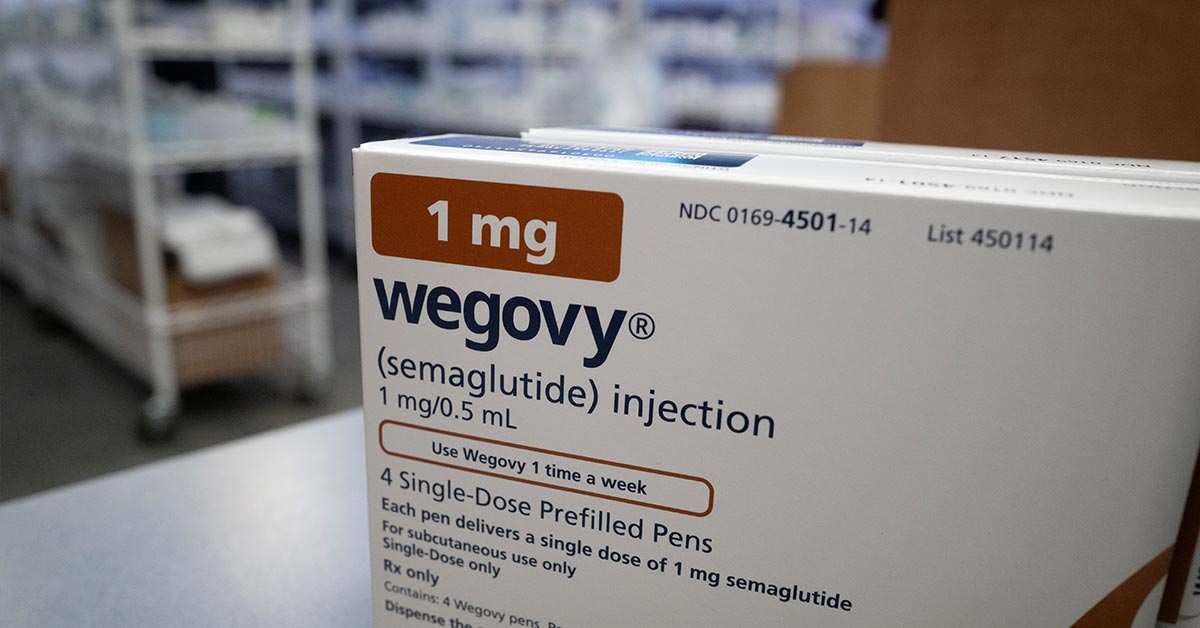High levels of effectiveness reported, but less so among older users
WASHINGTON, D.C. — Six percent of U.S. adults, representing an estimated 15.5 million people, report having used injectable diabetes medicine to reduce weight, including 3% who are currently using such medicine specifically for this purpose. Current or past usage runs slightly higher among women, those with health insurance and those aged 40 to 64.
This analysis is part of the Gallup National Health and Well-Being Index. The results are based on a web survey of 5,577 U.S. adults, conducted March 4-9, 2024, using Gallup’s probability-based panel encompassing all 50 states and the District of Columbia.
Since the U.S. Food and Drug Administration approved the Novo Nordisk drug Wegovy for weight loss in 2021, the use of diabetic drugs containing semaglutide has rapidly gained popularity among those hoping to lose weight. Other options have since come on the market, including Zepbound (tirzepatide), which received FDA approval in November 2023.
To measure current or previous household use, Gallup asked: “Have you or a family member ever taken an injection for weight loss, such as semaglutide (brand names Ozempic and Wegovy) or liraglutide (brand name Saxenda)?” To measure current individual use, Gallup asked: “Are you currently taking injections for weight loss, such as semaglutide (brand names Ozempic and Wegovy) or liraglutide (brand name Saxenda)?” The data reported here are based on individual rates rather than household.
Close to two-thirds of Americans who have taken weight loss injections (64%) say the drugs have been either “extremely effective” or “effective” at helping them lose weight. Only 11% report weight loss injections to be “not at all effective.”
Perceived effectiveness is relatively consistent among younger and middle-aged adults, with 70% of those aged 18 to 49 and 67% of those aged 50 to 64 reporting weight loss injections as effective or extremely effective. Among adults aged 65 and older, however, reported effectiveness is much lower, at 48%.
Both current and past users of weight loss injections are more likely to be obese than those who have never taken injections. Current users are about twice as likely to be obese as those who have never taken injections (71% vs. 36%, respectively).
Associated chronic conditions such as high blood pressure, high cholesterol and diabetes are also substantially higher among both current and past users than among those who have never taken weight loss injections, indicating a higher overall disease burden among users.
However, compared with current users, Americans who have previously taken weight loss injections report lower levels of obesity, high blood pressure, high cholesterol and diabetes. While these differences are consistent with the benefits reported in clinical trials, weight loss injections that are prescribed in conjunction with changes to diet and exercise may also help reduce disease burden.
Current users are more optimistic about their weight loss and wellbeing than past users. Nearly three-quarters of current users (73%) say weight loss injections are effective or extremely effective, compared with 53% of past users.
Although experiencing lower levels of effectiveness may contribute to decisions to discontinue using weight loss injections, less positive reports among past users are also consistent with recent critiques of weight loss injections as a long-term solution, with sources indicating that discontinued use can be associated with weight gain or other side effects.
Reported effectiveness among users of injectable weight loss drugs indicates that a substantial number of Americans — about 10 million — believe they have benefited from the injections. Evidence of lower rates of obesity and other chronic conditions among past users relative to current users may corroborate these reports.
However, lower levels of self-reported effectiveness among older adults and past users, as well as lower rates of use among uninsured Americans, suggest a need for further exploration of patterns of access and benefit across various subgroups.
To stay up to date with the latest Gallup News insights and updates, follow us on X.
Learn more about how the Gallup National Health and Well-Being Index works.
Learn more about how the Gallup Panel works.
Results from the most recent survey, conducted March 4-9, 2024, are based on responses from 5,577 adults, aged 18 and older, living in all 50 U.S. states and the District of Columbia as part of the Gallup Panel™. For results based on this sample of national adults, the margin of sampling error is about ±1.5 percentage points at the 95% confidence level, design effect included.
The margin of error for the age groups found in the “effectiveness” table is much larger, about ±11.0 percentage points, with a margin of error of about ±6.0 percentage points for all adults.
Gallup weighted the obtained samples to correct for nonresponse. Nonresponse adjustments were made by adjusting the sample to match the national demographics of gender, age, race, Hispanic ethnicity, education and region. Demographic weighting targets were based on the most recent Current Population Survey figures for the aged 18 and older U.S. population.
In addition to sampling error, question wording and practical difficulties in conducting surveys can introduce error or bias into the findings of public opinion polls.
Subscribe to the Front Page newsletter for weekly insights on the world’s most pressing topics.
(*) Required
This site is protected by reCAPTCHA and the Google Privacy Policy and Terms of Service apply.
Search, examine, compare and export nearly a century of primary data.
Married people are more likely to be thriving in their wellbeing than adults who have never married, are divorced or are living with a domestic partner.
Post pandemic, U.S. obesity and diabetes rates have reached record highs amid significant declines in healthy eating and other health habits.
As opioid overdose rates continue to rise in the U.S., leaders can look to key aspects of wellbeing as a means of curtailing the trend.
A record-high 57% of Americans say they would feel better if they could get more sleep; Americans average a historically low 6.5 hours per night. Stress levels have been rising, especially among young women.
Gallup https://news.gallup.com/poll/644861/injectable-weight-loss-drugs-uses-work.aspx
Gallup World Headquarters, 901 F Street, Washington, D.C., 20001, U.S.A
+1 202.715.3030


